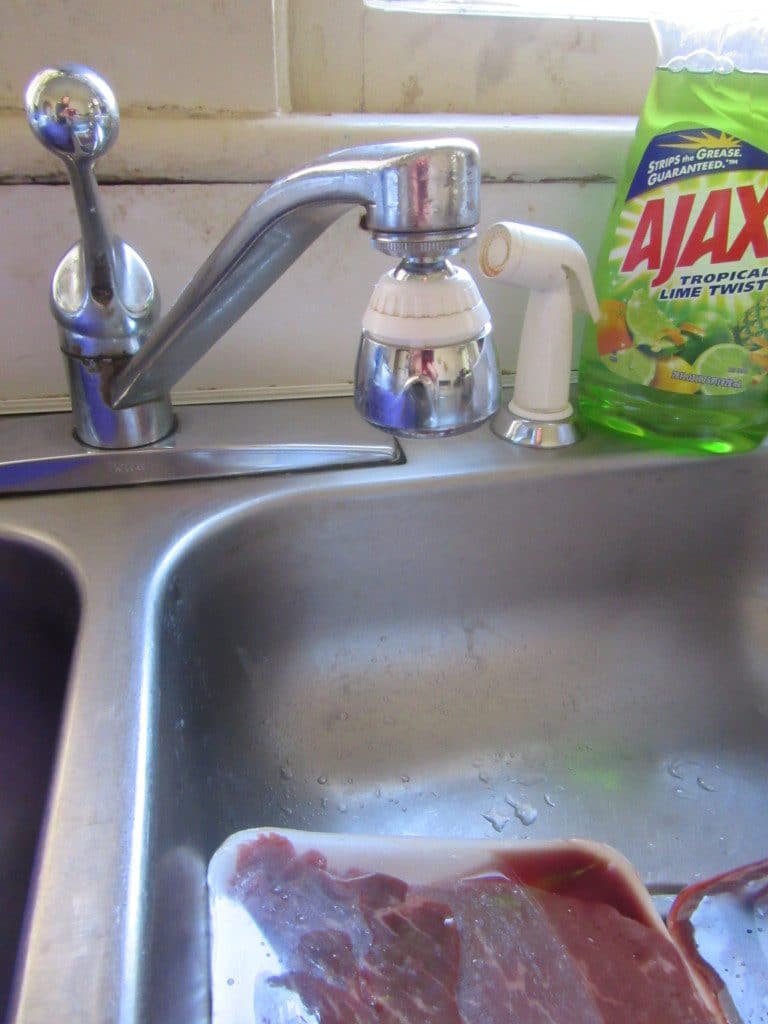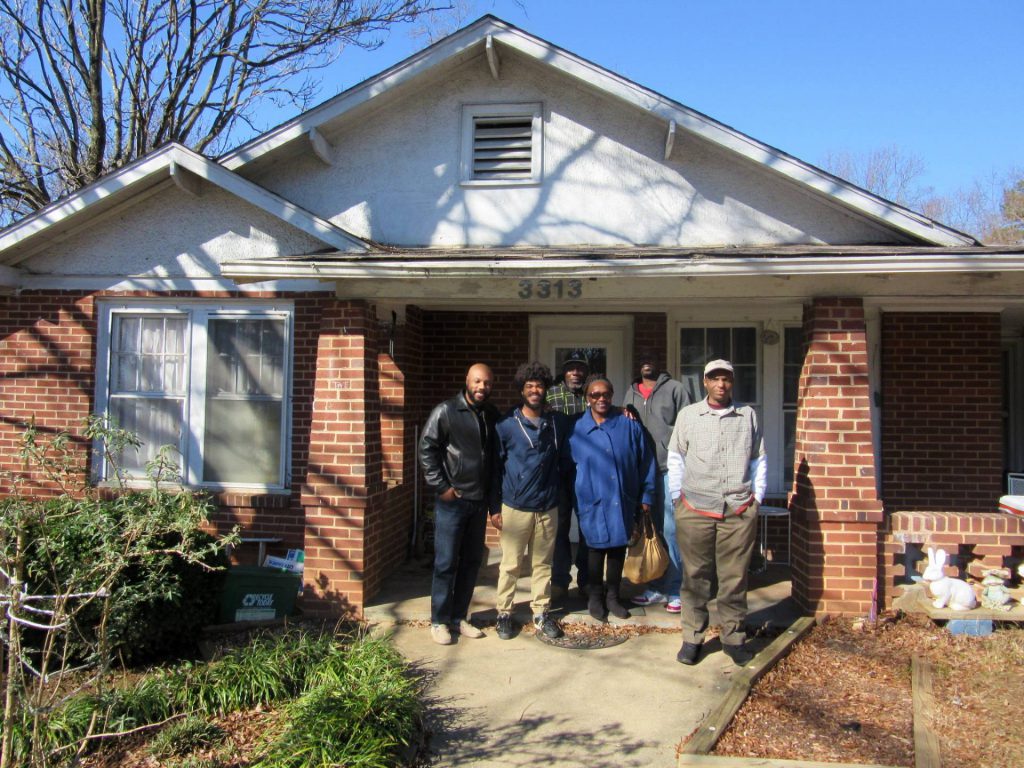Blanche Tate-Lee never imagined she would be talking with her fellow church members about the importance of weather-stripping and water heater jackets. Now in her late 60s, she can’t stop.
“I want to teach someone else what I learned,” Ms. Tate-Lee said. “I never knew anything was wrong with my high energy bills.”
As part of Duke Energy’s monthly fixed rate program, Ms. Tate-Lee pays $331 each month for her electricity. The amount bill to ratepayers in the program is based on the average amount of energy consumed in the home.
Built in the early 1950s, Ms. Tate-Lee’s home and others in the community haven fallen prey to old age: cracks around windows and in the walls keep homes drafty, forcing residents to crank up their systems when temperatures reach extremes. This translates into residents consuming more energy, pushing those costs higher and higher.
Last year at this time, Ms. Tate-Lee’s energy usage was 4,421 KWH. Despite cranking up her heat during the winter months, her house never felt warm.
“It always felt drafty,” she noted. “Now, it feels comfortable.”
Fast-forward one year to a monthly energy bill reflecting total usage of 2,601KWH. That is nearly half of what she was using this time last year. Even with temperatures above average, she credits much of the reduction to simple actions taken to both weatherize her home and make it more efficient.
As a long-life caretaker, Ms. Tate-Lee has always taken an interest in getting involved and doing something for her community. After moving into her current eastern Winston-Salem home in 1999, she became active in her church (Eastside Church of Christ) as well as the local neighborhood association. Through her role as Secretary on the association’s board, she met John Brown, another community activist who connected her to PowerUp NC, a project of the NC League of Conservation Voters Foundation.
PowerUp NC is working with neighborhoods where the majority of residents are people of color or have low-income households throughout the state to connect everyday concerns to environmental safeguards. Whether its high energy costs, health concerns, or affordable housing, all of the issues have roots in protecting our natural resources and investing in clean energy solutions. This is particularly important for North Carolina’s most vulnerable populations. In Ms. Tate-Lee’s case, she remains on a fixed income, receiving Social Security and a pension after working at the NC Baptist Hospital for 30 years.
In December 2015, Rashad Gibson and Aaron Bryant with PowerUp NC were introduced to Ms. Tate-Lee through their newest volunteer, Mr. Brown. After learning more about Ms. Tate-Lee’s story, the team selected her home to be the first retrofit project for PowerUp NC’s Triad office.
The quest to learn more and pass it on is nothing new for Ms. Tate-Lee. She started her career working in housekeeping at North Carolina Baptist Hospital. Over her 30-year span, she continued to seek out new opportunities for growth, moving into the role as transporter, then nursing assistant, and finally wrapped up her time as a Unit Secretary.
This mother of four, grandmother of eight, and great-grandmother of three wants to protect the environment for all of them. Before getting involved with PowerUp NC, she never considered herself an environmentalist. But, with a growing interest in energy savings, she is doing all she can to spread the word on how her neighbors and community can get involved in saving money, creating jobs, and leaving their area cleaner and safer for the next generations to come.

On December 12, about 10 people, including two contractors, came out to Ms. Tate-Lee’s home to not only complete basic weatherization projects but to train all of the volunteers, include Ms. Tate-Lee, on how to inspect and make small changes to their own homes to reduce energy waste.
Some of the hands-on projects undertaken included:
- Turning down the water heater as well as placing a jacket over it to keep it insulate (reduces amount of time it runs)
- Remove debris from refrigerator vents by vacuuming once every three months
- Replacing sink and shower faucets with low-flow varieties to reduce water consumption
- Shortening hoses between the dryer appliance and the exterior vent (fire hazard)
- Rinsing off washers on bathroom sinks to remove elements from water
- Replacing and adding weather stripping and rounded door seals around the front and exterior doors
One of the most remarkable moments during the retrofit day was when the contractors tested to find where air was coming into the house.
“After they sucked out all of the air, they turned on infrared cameras to show where air was coming in. Much of it was coming in around the front door,” Ms. Tate-Lee shared.
With the first phase of her home’s weatherization upgrades in the book, Ms. Tate-Lee is applying for financing from the Piedmont Triad Regional Council (PTRC) weatherization outreach program. She will need some additional upgrades, including new insulation for her attic, to continue lowering her monthly energy consumption.
The quest to learn more and pass it on is nothing new for Ms. Tate-Lee. She started her career working in housekeeping at North Carolina Baptist Hospital. Over her 30-year span, she continued to seek out new opportunities for growth, moving into the role as transporter, then nursing assistant, and finally wrapped up her time as a Unit Secretary.
This mother of four, grandmother of eight, and great-grandmother of three wants to protect the environment for all of them. Before getting involved with PowerUp NC, she never considered herself an environmentalist. But, with a growing interest in energy savings, she is doing all she can to spread the word on how her neighbors and community can get involved in saving money, creating jobs, and leaving their area cleaner and safer for the next generations to come.


